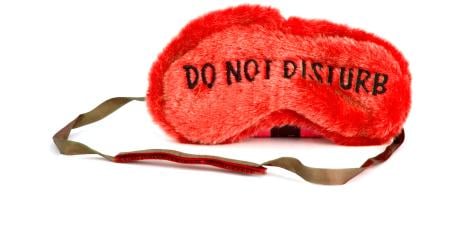Case
Jocelyn was a type A personality and an overachiever. For 4 years she had been working 90 hours a week for a high-powered investment banking company. She had finished at the top her class at one of the best MBA programs in the country and was always trying to find a way to do more, be more, accomplish more. She had recently learned that a friend was taking a medication called modafinil (used in the treatment of conditions such as narcolepsy and attention-deficit disorder). Even though Jocelyn had never experienced excessive daytime sleepiness or symptoms of attention deficit disorder, she wondered if, given her demanding job, the drug could give her an "edge." She asked her friend for a few pills and noticed a significant improvement in her ability to concentrate. Encouraged by the results, Jocelyn made an appointment to see her primary care physician, Dr. Davis, to obtain a prescription for herself.
"You wouldn't believe how well I can concentrate when I take modafinil. My memory is better than it's ever been. I have gotten more work done, and now I actually have the energy to exercise after work," Jocelyn told Dr. Davis.
"Even though you are experiencing benefits from the medication, you don't have symptoms of daytime sleepiness indicating an underlying condition that would make it appropriate to prescribe," replied the doctor.
Jocelyn questioned Dr. Davis, "But I'm not having any side effects, and I've read it isn't addictive. I mean, it is doing me a lot of good, and isn't it your job to do what's in my best interest?"
Dr. Davis thought that Jocelyn had a point—modafinil does produce, for many people, the results she had described—and he could tell that her perceived quality of life was enhanced by taking this medication.
Commentary
We face these types of demands in our clinical practice regularly: "normal" patients asking for ways to cope with their environment, either through medication or other means. State laws on prescribing practices vary, but, if we take California's Business and Profession Code as an example, we see that section 725 (a)(3) states that: " Repeated acts of clearly excessive prescribing, or administering of drugs or treatment...is unprofessional conduct for a physician and surgeon... .Any person who engages in clearly excessive prescribing or administering or drugs or treatment is guilty of a misdemeanor" [1]. In our case Jocelyn has no diagnosed pathology, thus no clear medical reason for taking this medication. Prescribing modafinil under these circumstances would put Dr. Davis on very shaky legal ground.
Since our case looks mainly at performance enhancement, we may want to see how other professional organizations, such as amateur sports, have handled nonmedically necessary pharmacological agents. Modafinil is considered a stimulant and is banned by World Anti-Doping Agency (WADA) [2]. Recently, several U.S. track and field athletes who tested positive for this substance were either stripped of medals or temporarily banned from competition [3].
For medical purposes, modafinil is a schedule 4 drug, thus differing from the classic stimulants like amphetamines, which are listed under schedule 2 [4]. Although the modafinil monography lists the drug as having a low potential for abuse [5], there is disagreement within the profession concerning its euphoric effects and real abuse potential [6].
We often prescribe drugs for conditions for which their use was not approved by the FDA—a practice known as off-label prescribing. Modafinil is no exception; it has been used for attention-deficit disorder and other conditions. It is important to understand that off-label use follows trials in which pathological disorders have been investigated and treated effectively with the drug in question. Results of these studies are published in peer-reviewed journals or presented at scientific meetings, thus stimulating interest in the new usage. To date there is no scientific data supporting use of modafinil for Jocelyn's condition. Sheer exhaustion from an impossible schedule is not a medical disease. To our patient, life is a competition and she is willing to try anything to gain or maintain an edge.
That Jocelyn took the drug for a few days and felt better raises many questions. Will the dosage remain effective, or will she want higher doses as her work and stress levels increase? If ever-higher doses are needed, is she likely to try to obtain modafinil through the Internet or even "graduate" to other psychostimulants? Would she be tempted to try illegal drugs that enhance alertness?
I believe that prescribing this drug for a nonmedical reason will lead Dr. Davis and Jocelyn down the slippery slope of expectative efficacy. Opinion 8.06 of the American Medical Association's Code of Medical Ethics reads: " Physicians should prescribe drugs, devices, and other treatments based solely upon medical considerations and patient need and reasonable expectations of the effectiveness of the drug, device or other treatment for the particular patient " [7]. Jocelyn's reasons for wanting the drug are not medical, therefore drug prescription for the purpose stated in our story would probably be considered unethical. Should we "drug" our patients in order to help them cope with their everyday life? Is modafinil, in this case, more of a lifestyle drug than a medical drug?
Denying Jocelyn a prescription for modafinil does not fulfill Dr. Davis's professional duty to his patient. Instead of supplying her with a "miracle drug," Dr. Davis should reflect on Jocelyn's work schedule and either advise her to modify her habits before the routine gets the better of her, or, after listening to her, refer her to a therapist for a professional opinion. I doubt that Dr. Davis would have brought up the use of modafinil in the first place if Jocelyn hadn't mentioned that she had already tried it. Reviewing the reasons why Jocelyn wants the drugs—beyond just the alertness—may go a long way in treating what is really bothering Dr. Davis's patient.
So, Dr. Davis would be wise to refrain from prescribing modafinil to Jocelyn and should either take charge of the situation, which is a lifestyle problem rather than a physiologic one, or encourage her to search for a medical diagnosis by referring her to appropriate specialists.
References
-
California Business and Professions Code Section 725-733. Unprofessional conduct. http://law.justia.com/california/codes/bpc/725-733.html.
-
World Anti-Doping Agency. World anti-doping code. The 2008 prohibited list. International standard. http://www.wada-ama.org/rtecontent/document/2008_List_En.pdf. Accessed July 15, 2008.
-
Associated Press. USOC IDs failed drug test athletes. http://www.cbsnews.com/stories/2003/12/30/national/main590778.shtml. Accessed July 15, 2008.
-
US Department of Justice. Lists of: Scheduling Actions, Controlled Substances, Regulated Chemicals. Washington, DC: Drug Enforcement Agency; 2008. Accessed July 15, 2008.
-
Provigil [package insert]. Frazer, PA: Cephalon, Inc.; 2008. http://www.provigil.com/Media/PDFs/prescribing_info.pdf. Accessed July 15, 2008.
-
Kruszewski SP. Euphorigenic and abusive properties of modafinil. AMJ Psychiatry. 2006;163(3):549.
-
American Medical Association. Opinion 8.06 Prescribing and dispensing drugs and devices. Code of Medical Ethics. Chicago, IL: American Medical Association; 2008. Accessed July 15, 2008.



